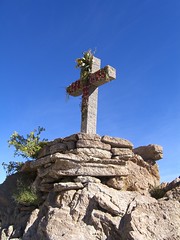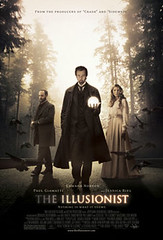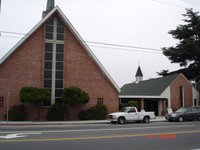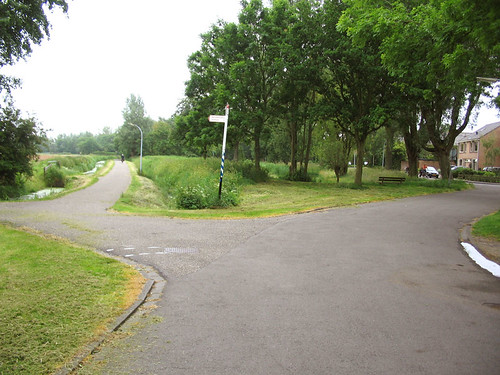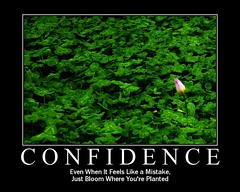
What gives you confidence? Is it doing a good job at something? Does it come to you after you have won something? Or does it come when someone believes in you, even when you don't believe in yourself?
God believes in you and me, even if we don't believe in ourselves. Why? Because God created us, and knows what we are capable of doing; especially if we are empowered and guided by God. Ephesians 2:10 tells us: "For we are God's workmanship, created to do good works in Christ Jesus..." We are created to do good works.
Today I finish my series on Reggie McNeal's book "The Present Future." I hope this series has provoked new thoughts in you about your life, about how you play an important role in the church, and about how the church needs to find new ways to interact with the culture. In today's blog I want to talk about the difference of thinking that churches are developing people for church work, verses understanding that churches are to be shaping people to make a difference for Jesus Christ in the world.
The problem with the first way of thinking, is that when people come to church, if a church is concerned about developing people for church work, then they feel used and limited. This last summer I was an assistant coach for my son Tyler's baseball team. I didn't want to be the head coach because I couldn't always be there, and because there were many meetings that the head coach had to be a part of. In this experience it made me realize that in the church we often ask people to be involved in work that they have no interest in. They come wanting to do something special for God, and get bogged down in busy work.
However, if we are shaping people to make a difference for Jesus Christ in the world, then they are set free to do the work God's leads them to do. This may very well be something for the church, but this something is going to make a difference for the Kingdom of God, not just for the church. It helps people to use the giftedness that God gave them. And as they start to see where God wants to use them, and that God has called them to do this work, then they have confidence to do it because they understand God has confidence in them.
The other thing that happens is that we stop seeing the church as a building, as a fixed point, and realize that the church is people. When we understand that the church is people, then we also realize that when we go out into the world, the church is going out with us. This too gives us a lot of confidence, since we are not alone in our going out. This also causes many more opportunities for the church to be effective, because the church is encountering people for Jesus every day, as the people of God are encountering others.
So we need a missionary mindset, because we understand that the mission field is all around us. As a missionary seeks to understand the culture, language, and needs of the people around them, so we too go out needing to understand the culture, language, and needs of those around us. We can't communicate with others using church language, but rather we need to just simply share with others the important ways that Jesus has impacted our lives, and the difference that makes in the way we live and love and share and care. It is about developing a heart that cares for people in the midst of their struggles and pain and lostness.
When we are involved in dealings of drudgery, then we have little energy, enthusiasm or confindence. But when we are at work in ways that God has designed us to work, we will have a great amount of confidence, energy, enthusiasm, and creativity. Let us seek to have a bigger picture of what the church and our lives are to be about. Tell me what you think (pastorchrislogan@yahoo.com).

